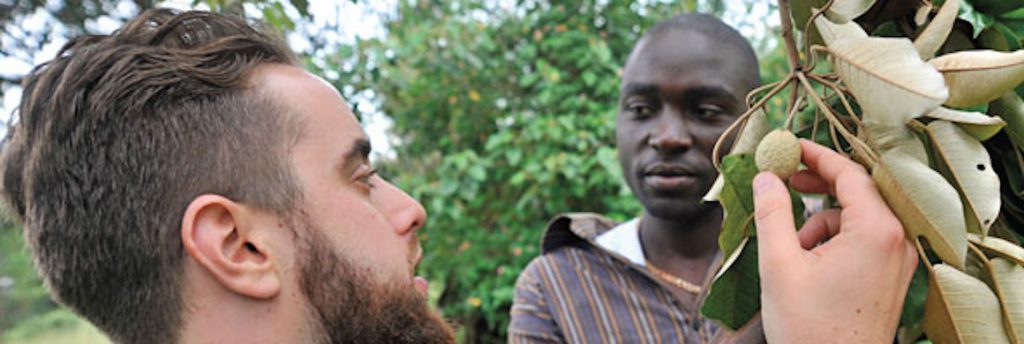D’Amore-McKim Alum Shares Trials of African Biofuel Startup

D’Amore-McKim recently published an article by Bill Ibelle that investigates the ups and downs of a biofuel business working to reduce deforestation, depleted soil and unemployment in Kenya by harnessing the unseen potential of the croton nut.
EcoFuels Kenya’s managing director Myles Lutheran, DMSB ’10 says his organization devised a “no-waste manufacturing process” to use croton nuts—25,000 tons of which fall to the ground and go unused each year from the one million croton trees scattered throughout Kenya—to produce biofuel to power sub-Saharan African diesel engines, irrigation systems, electric generators and refrigeration, as well as “organic fertilizer, chicken feed and briquettes for cooking fires.” In addition, croton oil produces virtually no carbon emissions.
Despite the novelty and efficacy of their idea, it may not be surprising to learn that the financial reality of a social enterprise like EcoFuels is no day at Pismo Beach. What is surprising, however, is Lutheran’s strategy for staying afloat, which deliberately avoided big money investments.
EcoFuels’ initial plan involved selling croton nut fertilizer to subsidize their biofuel. Although the strategy attracted small investment, locals didn’t take the organic bait as they relied on the tried-and-true, fast and cheap chemical fertilizer for day-to-day survival.
Lutheran says, “In Silicon Valley, they call it ‘failing fast.’ The idea is not to actually fail but to figure out quickly what doesn’t work and adjust.” EcoFuels pivoted and began selling chicken feed and cooking briquettes to subsidize its biofuel, which became a rousing local success.
EcoFuels was still coasting by the skin of its teeth. Penn State forestry professor Michael Jacobson studied EcoFuels’ viability on behalf of the World Agroforestry Center and said the company needed to figure out a sustainable way to level up.
“The products had a lot of potential,” Jacobson says, “and there was sufficient interest among Kenyan farmers but they needed to scale up production and sales to bring the cost down and increase profitability.”
Lutheran spearheaded a successful nationwide fundraising tour in the spring of 2015, which secured EcoFuels $700,000 in investment and an $800,000 Africa Enterprise Challenge Fund grant to “build a second factory in Kenya, develop its first commercial orchard, research ways to improve the productivity of croton trees, and hire more farmers to collect the nuts.”
Lutheran concludes: “The world has lots of problems that need to be solved, and business is the best way to bring about change. The most important thing this field can produce is a successful business.”
